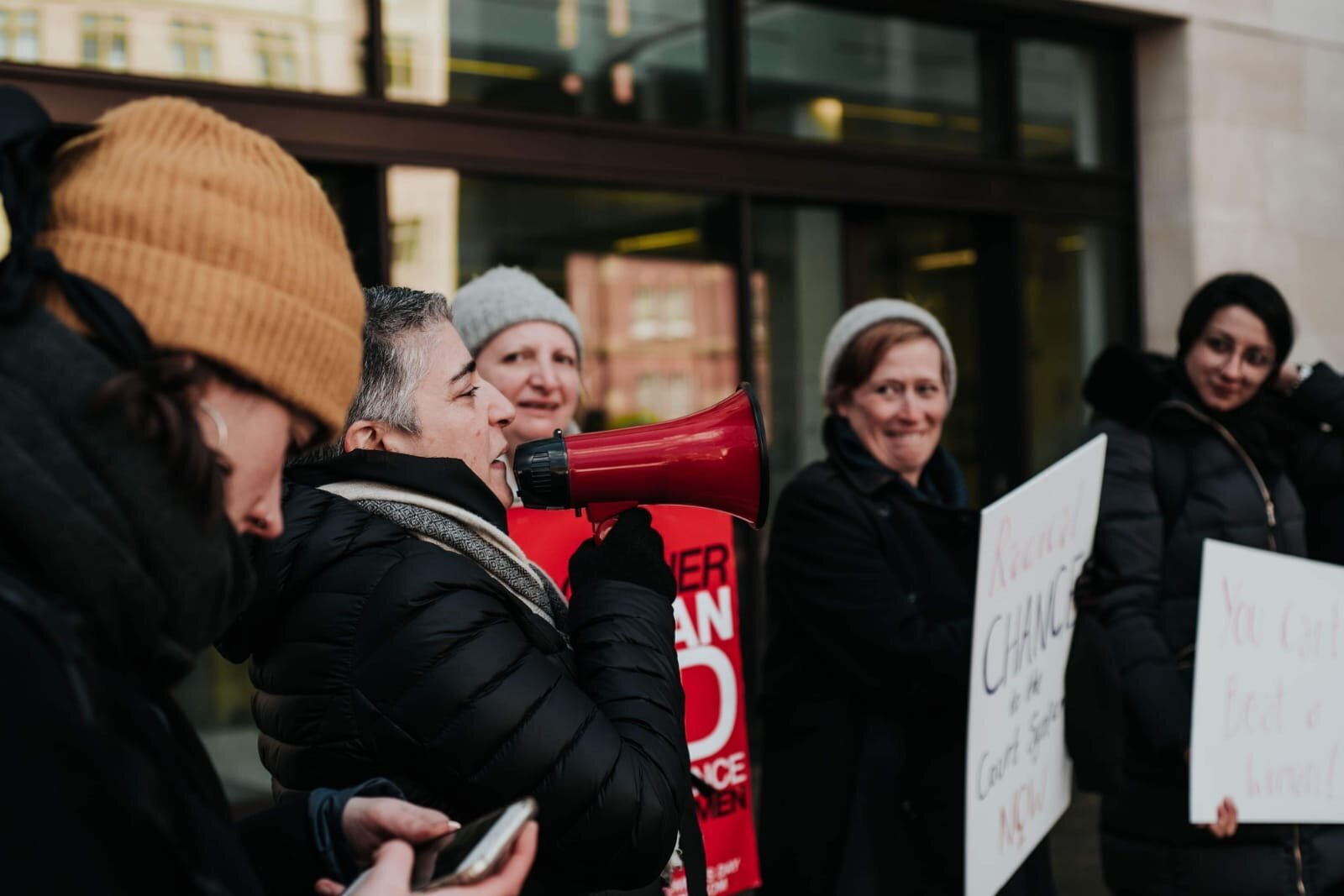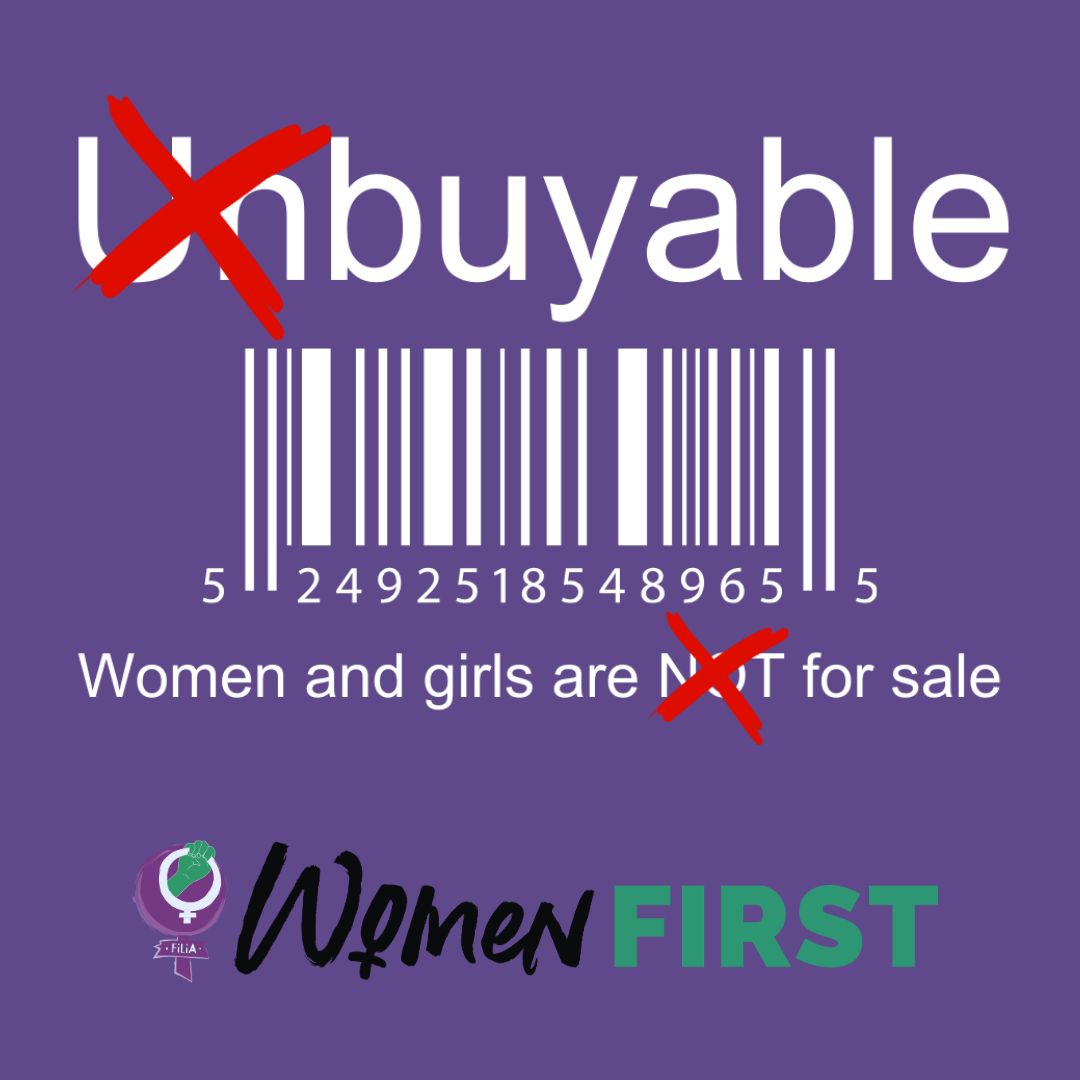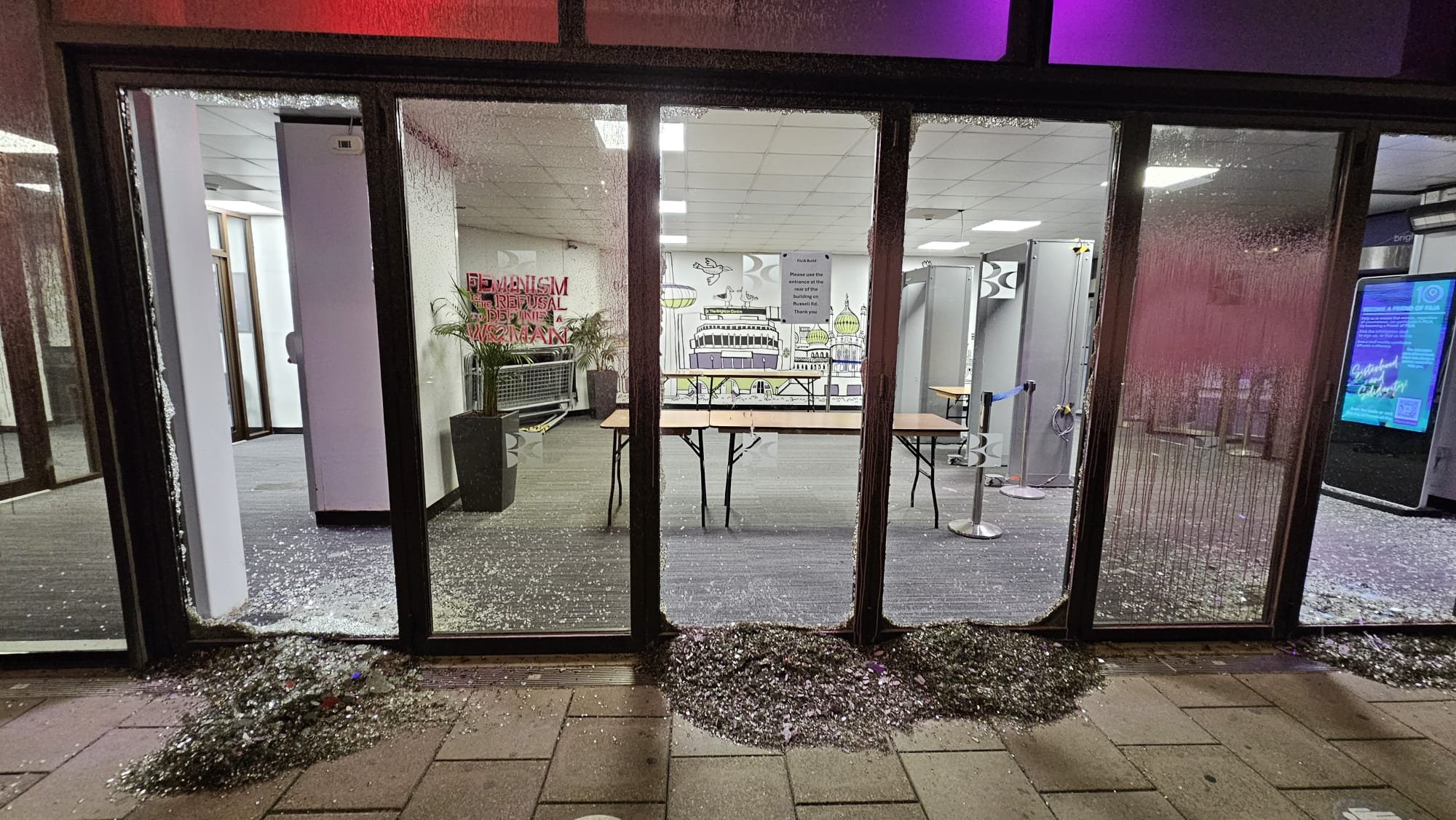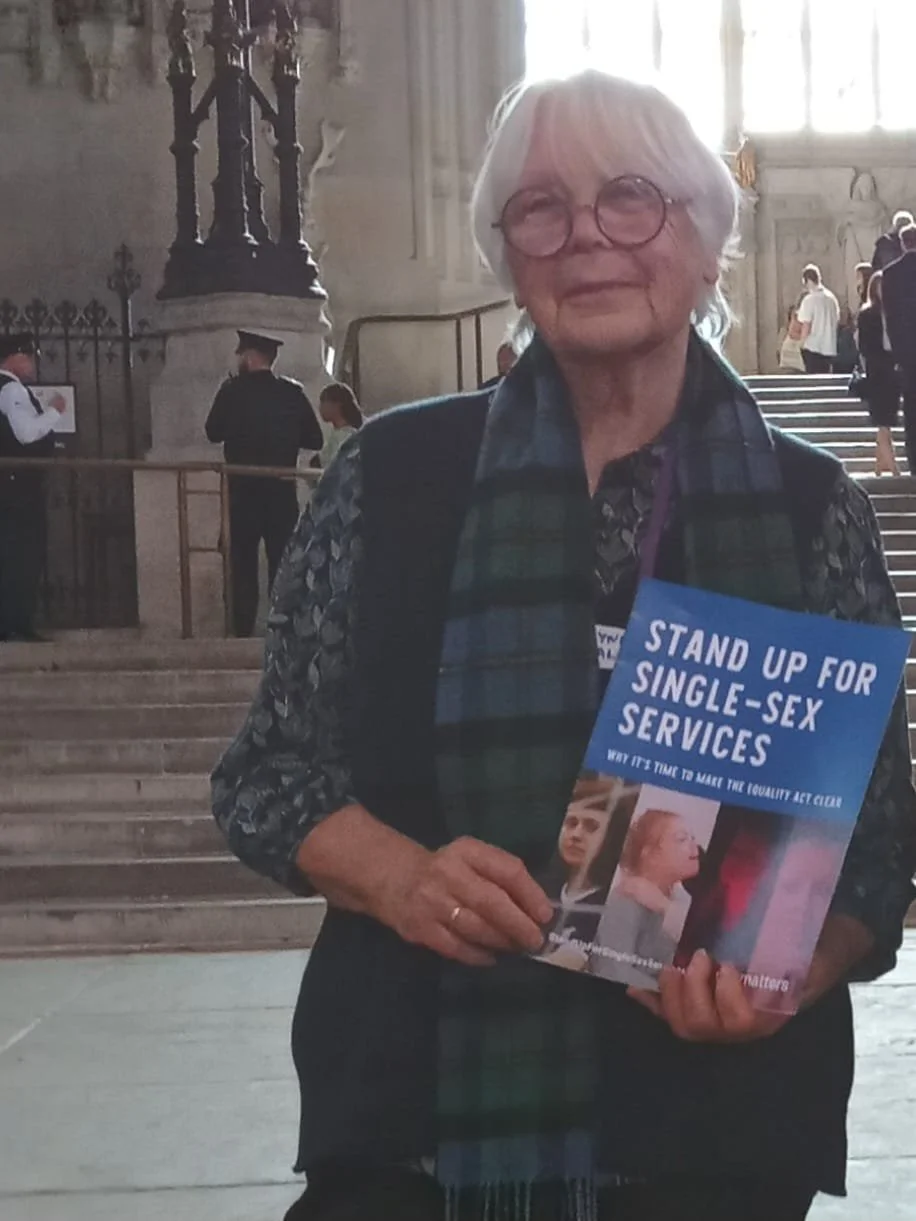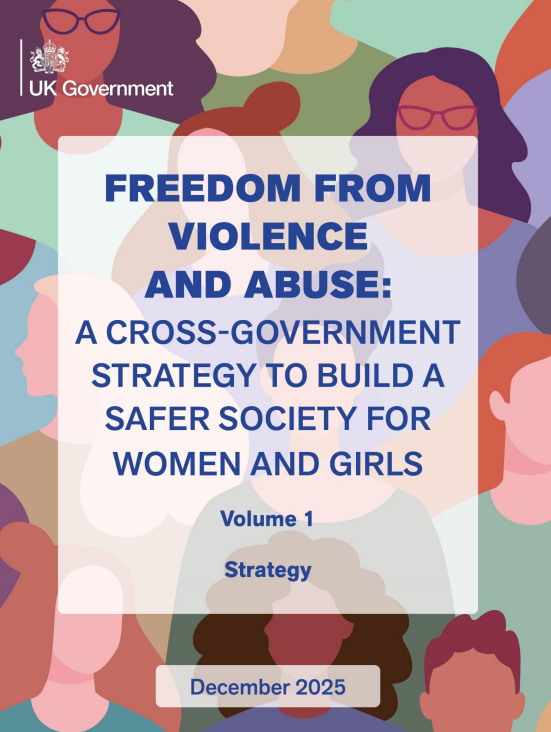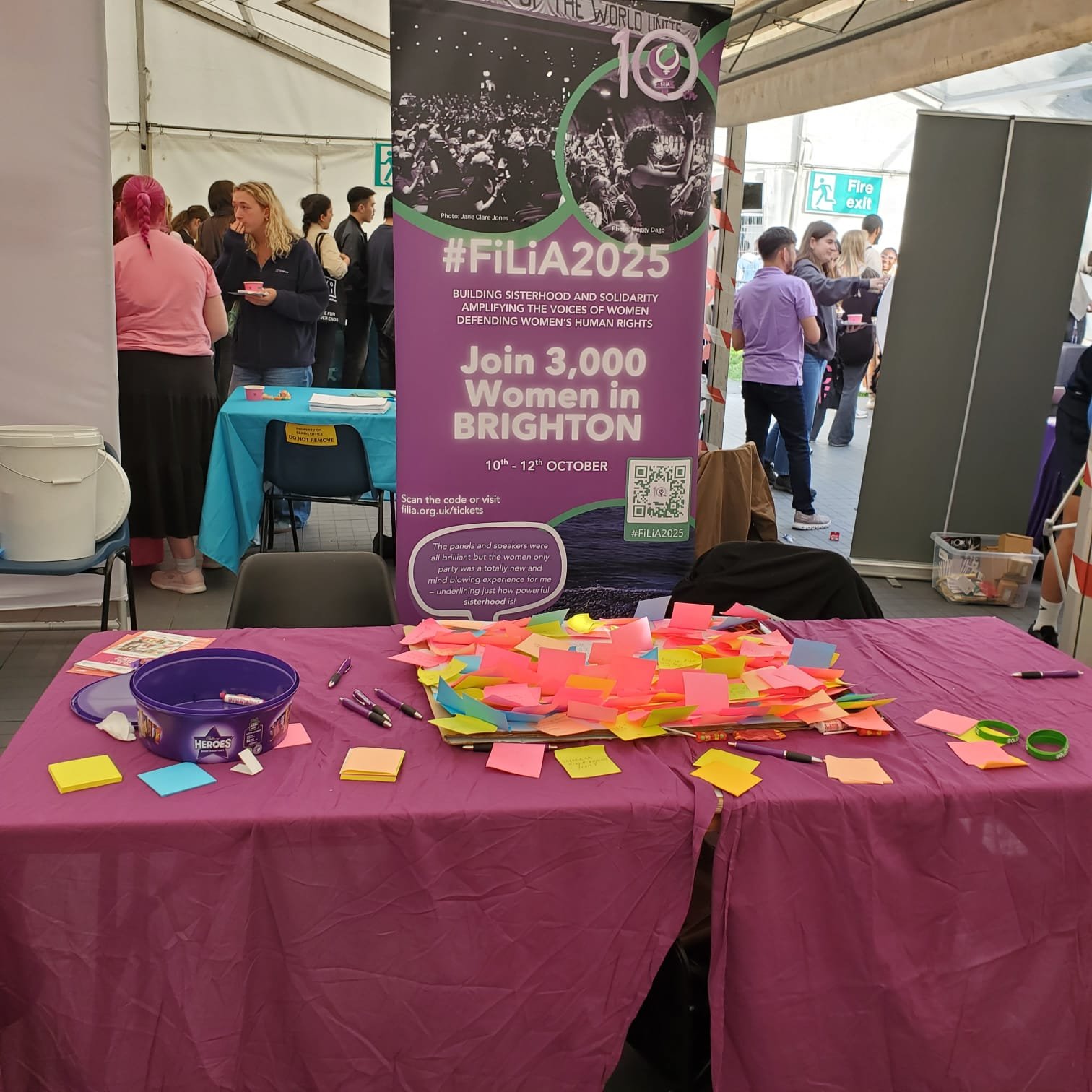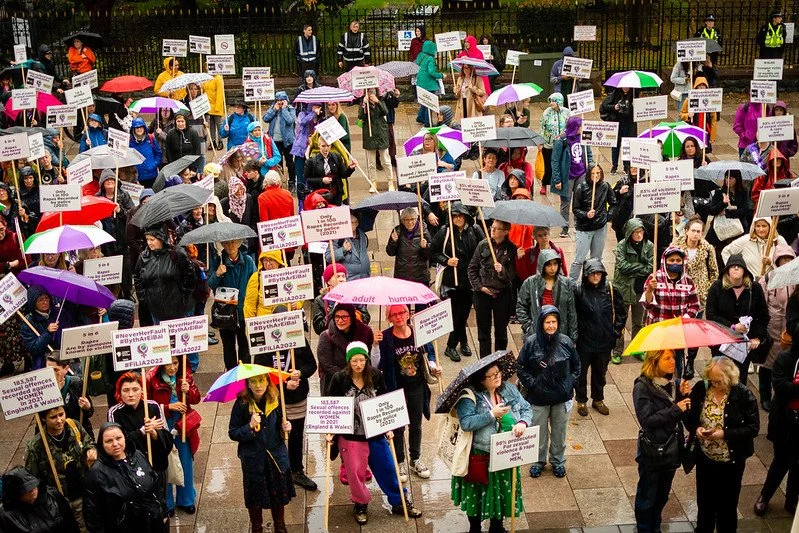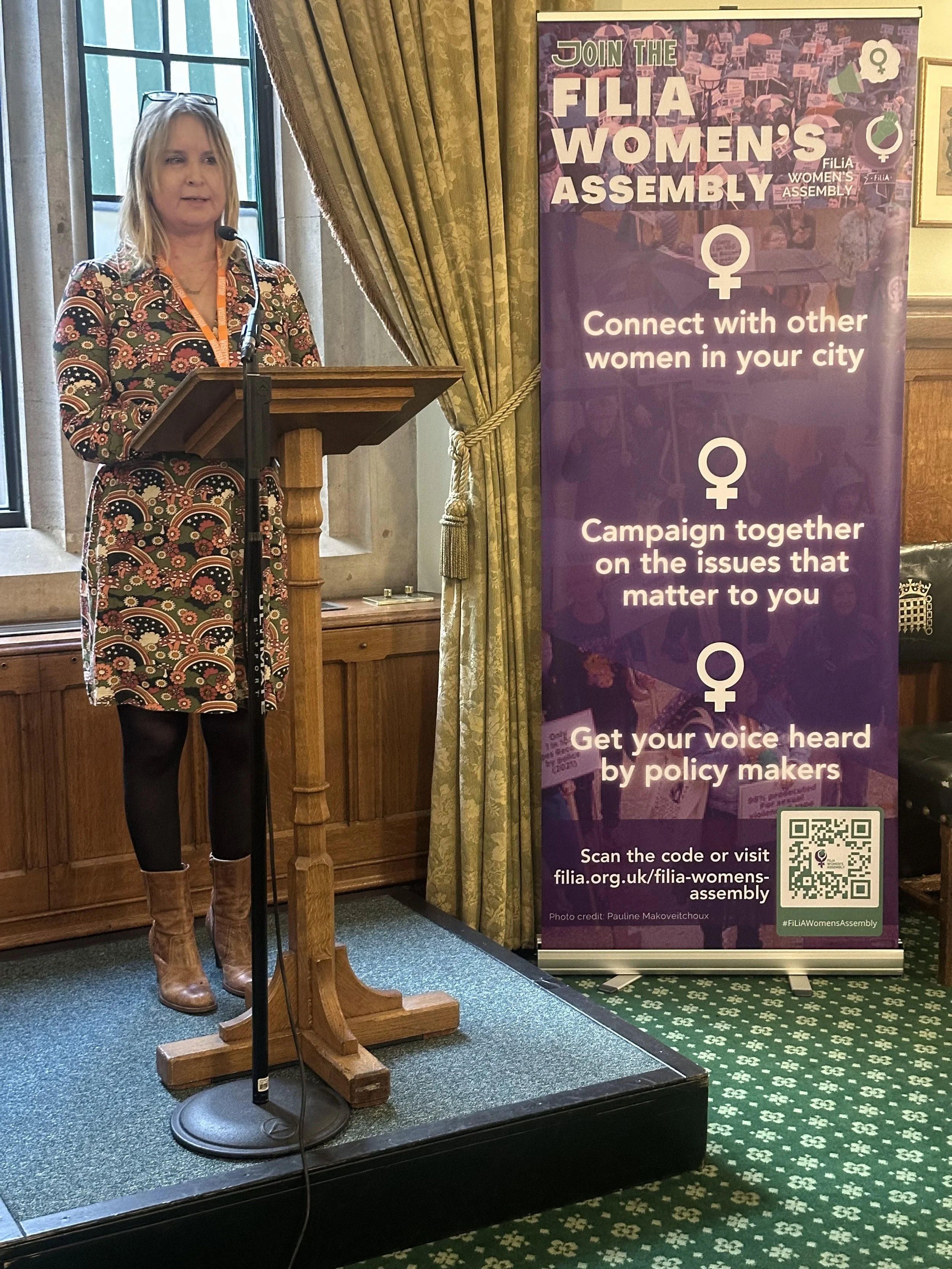Written by Hannah Shead, FiLiA Women First Project Lead, this blog reflects on the Unbuyable debate that took place in Scottish Parliament and is a summary of the key issues and outcome. We call on local authorities to work with us to use our Women First audit tool. We call on policy makers to listen to the voices of survivors of the sex trade, not just those with the loudest platforms.
Learn about the causes we are fighting for and how you can get involved.
Narrow your search or read everything.
When women age we become increasingly invisible in our culture, and this applies even more so to lesbians. This was a short speech given as part of the lesbian stream of workshops and events at FiLiA 2025. It speaks about our identities as older lesbians, some of the issues we are confronted by and the importance of lesbian community and of consciousness-raising groups as a way of exploring the issues of old age and the sisterhood we need to support one another through the difficulties and the joys.
FiLiA has a lengthy history in highlighting the harms of surrogacy and egg donation on women and children, and also in supporting action and activism to address this violation of women's human rights. The FiLiA Women's Assembly, a growing network of women across the UK, recently arranged a focus group in order to respond to a new consultation on surrogacy. A consultation which signalled that the threat of surrogacy law reform, with a potential relaxation in the laws which govern this exploitative practice, persists. There is, however, a powerful, grassroots movement of women in FiLiA Women's Assembly mobilising resistance.
The International Day for the Elimination of Violence Against Women and the 16 Days of Activism are not symbolic hashtags or polite reminders. They are part of a long feminist tradition of refusing silence, refusing minimisation and refusing the global indifference that too often greets male violence against women and girls (MVAWG). These moments matter because they amplify the truth that patriarchy works overtime to obscure: that MVAWG is not natural, inevitable or random, it is political.
The FiLiA Campaigns and Policy team are pleased to have formally launched the FiLiA Women's Assembly (FWA) and our new report, Making Policy Work for Women, with an event in Parliament on Wednesday 19th November 2025. We are very grateful to Tonia Antoniazzi MP for being our Parliamentary sponsor for this event. She, Fran, a member of the FiLiA Women’s Assembly, and Kruti, FiLiA’s Director of Policy, all gave short speeches at the event and we are proud to share them here.
The FiLiA Trustees have been reflecting since our conference finished six days ago, listening to the many Women affected and looking after our team, who have worked exceptionally hard over the last two years in preparation for our largest and 10th conference. It is clear there are multiple perspectives and experiences and we want to start by acknowledging that this statement won’t satisfy everyone but we hope it reassures Women that we have listened, will continue to listen and are responding to the issues that occurred last weekend.
Rahila Gupta and Beatrix Campbell, two feminist titans whose activism and writing spans a century between them, have written an urgent dispatch from the frontlines of a war, one seemingly without end. The US radical feminist, Kate Millett, once wrote: ‘Perhaps patriarchy's greatest psychological weapon is simply its universality and longevity... Patriarchy has a still more tenacious or powerful hold through its successful habit of passing itself off as nature.’ (Sexual Politics, 1970). As much as feminists have disputed the naturalisation of that oppression, we have to contend with its persistence.
Another notification on my X account. It’s porn, again. They keep sending me porn. This time it’s different. It’s my face. The woman in the image, being penetrated from behind, smiles back at me with my own face. The thing is, it’s not me. There’s a photo of it, but this scenario never happened. They’ve turned me into ‘deepfake’ porn. Over the last six weeks, my Collective Shout colleagues and I have been subjected to a sustained, intense campaign of misogynistic threats and abuse. Why? Because we successfully campaigned to get rape, incest and child sexual abuse games off a few popular gaming platforms.
On 10th August 2025, Ms Lachgar was arrested in Rabat and placed in police custody pending investigation, following the online publication of a photograph in which she wore a T‐shirt reading “Allah is lesbian,” accompanied by a caption critiquing Islam. Ms Lachgar has since been targeted with thousands of threats, including calls for rape, death, stoning and other extreme violence.
Her arrest, conducted under Article 267‐5 of Morocco’s Penal Code, which criminalises public insults to Islam, carries severe penalties ‒ up to five years in prison and substantial fines.
Ms Lachgar is due to speak at our FiLiA conference in a matter of weeks. She is well regarded, and the audience of over 2,000 are anticipating being able to hear from her about her work on women’s rights and freedoms.
L’Oréal’s Urban Decay brand has appointed Ari Kytsya, an adult content creator on OnlyFans, as a brand ambassador, in a campaign heavily promoted to teenage audiences. We are deeply concerned that this partnership glamorises the pornography industry, an industry proven to fuel violence against women, normalise sexual exploitation, and harm young people’s perceptions of healthy relationships.
Along with sister organisations KairosWWT, nia, Women at the Well, and CEASE, we have written to L’Oréal calling on it to distance itself from an industry that profits from the degradation of women and to uphold its own stated ethical principles.
But then, everything stopped.
Two years into my studies, the Taliban returned to power. With a few cruel words, they closed the doors of every university to women. My faculty, once a symbol of hope and purpose, became a silent place where girls were no longer welcome.
They did not shoot me. They did not stab me, but they killed something inside me.
Because when someone takes your education, your purpose, your future, they are not just stealing your rights.
They are erasing your existence. But I am not the only one. I am just one example of more than 20 million girls and women in Afghanistan who are now banned from going to university, entering a park, sitting in a restaurant, or even walking freely in an open space to breathe.
In 2016, gender still meant the socially constructed gender stereotypes and gender roles. They are the root cause of misogyny and male violence against women and girls. They impact access to justice, safety, health care and citizenship. It is because of this that building critical analysis skills around gender was key to education as a way to prevent practices such as (but not limited to) child sexual abuse and exploitation, sexual violence, domestic abuse and female genital mutilation (FGM). My campaign was in memory of a girl who via gender stereotypes of sexual objectification was raped and murdered. The whole point was to make sure girls were safer.
FiLiA warmly welcomes the Government’s choice of preferred candidate for the next Chair of the Equality and Human Rights Commission (EHRC), Dr Mary-Ann Stephenson. As part of the process, she appeared in front of two Parliamentary committees and her performance was assured, knowledgeable, and principled. It is clear the Government made the right choice. We are extremely disappointed, therefore, to learn that the Committees are not endorsing Dr Stephenson. We have written to the Minister for Women and Equalities to express our support for Mary-Ann.
Critical protections for women are too often unconsidered and failing in their purpose.
We have responded to the Office for Equality and Opportunity (OEO)’s equality law call for evidence to raise the alarm that the Public Sector Equality Duty (PSED) is failing women. The OEO is examining whether non-public bodies exercising public functions are meeting their obligations under the PSED. However, this narrow focus misses a more fundamental opportunity.
FiLiA has spoken to women across the UK with disabilities or caring responsibilities about the Government’s welfare reform proposals. It is clear from what they have told us that the reforms could lead to significant harm – as we set out in our response to the Department for Work and Pensions’ consultation, Pathways to Work: Reforming Benefits and Support to Get Britain Working Green Paper. Further detail, as well as our response and Parliamentary briefing can be found here.
FiLiA have written to Ofcom and the Guardian after the Guardian reported on Ofcom's so-called research into the ‘manosphere’ and misogyny. FiLiA have significant concerns about the impact this research could have on women and girls, and are asking Ofcom to recall it.
‘If only women’s experiences were taken as seriously as the unquestioned statements of 38 men.’
It is remarkable that a women such as Florence Canning could disappear without a trace after devoting nearly ten years of her life campaigning for the vote.
There is no memorial to Florence in Brighton, indeed, there is nothing to remember Florence anywhere, apart from her grave in the churchyard of St Paul’s Church, Tupsley, Hereford, and even that was in need of restoration prior to a successful Crowdfunder in spring 2023.
To Saudi Arabia’s allies in London and Washington: stop treating our lives like a line item on a trade deal. From Trump’s Riyadh photo-ops to his latest pledge of ‘no more lectures on how to live,’ the message is clear: authoritarianism is culture, and repression is tradition—as long as the oil keeps flowing. And from Keir Starmer’s silence, it seems Britain agrees. The economy comes first, human rights second. We’re not asking for heroism. We’re asking you to stop hiding behind diplomacy while our rights are crushed. If you can put human rights on the table when it's Russia or Iran, you can do the same with Saudi Arabia. If you can leverage deals for weapons, oil, and football, you can do it for freedom.
The FiLiA Campaigns and Policy team have been working to support women to contribute to the Government’s consultation on disability benefits reform. We wrote to Parliamentarians who are also working to support disabled people to share our work and some of the responses we've had, and invite them to support and work with us to stand up for disabled women and carers who could be devastated by the proposed reforms.
We left the day in awe of Ash and her team in pushing forward with this important bill. We will continue to support it. We know that the more we move towards positive change, the louder the voices of opponents will be. We will continue to amplify the voices of survivors and encourage as many women as possible to support this bill and bring change.
When we spoke to survivors as part of our Women First interviews, they told us how important it is that women are asked about moving on from prostitution. We recognise that supporting a woman to move on is complex; there is no one-size-fits-all approach, and it is important that there is support across a range of needs: health, financial, housing, trauma. However, a fundamental starting point is actually asking a woman about moving on
On Wednesday morning, in a packed courtroom at the Supreme Court in London, the judgment in the For Women Scotland v The Scottish Ministers (FWS2) case was handed down. The Supreme Court unanimously agreed that the terms ‘man’, ‘woman’ and ‘sex’ in the Equality Act 2010 refer to biological sex. Holding a GRC does not change sex for the purposes of the EA2010. The court ruling makes clear to all what ordinary women across the UK have been saying for years: the law protects single-sex spaces and services.

